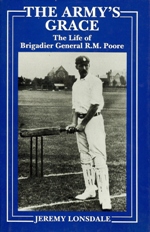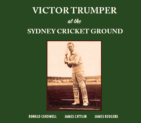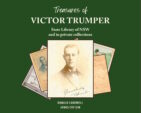The Army’s Grace
Archie Mac |Published: 1992
Pages: 145
Author: Lonsdale, Jeremy
Publisher: Spellmount
Rating: 3 stars

The chances of seeing another Major (he rose to a much higher rank but is best remembered by cricket lovers as Major) Poore are about as likely as seeing someone break Jim Laker’s record of 19 wickets in a Test match, plausible however highly improbable.
Poore was a first class cricketer, a champion polo player as well as a talented tennis player, golfer and racquets player. That apart Poore was named Best Man At Arms in a number of armed forces tournaments. This required him to be a champion horseman as well as a fine swordsman. With all of these sporting achievements it can be argued Poore is the greatest of the multi talented sportsman thrown up by history.
Poore also had a distinguished war history serving in India and two stints in South Africa including the Boer War. His career in the army with the legendary 7th Hussars brought him into contact with a number of legendary military figures including Lord Kitchener, Lord Roberts and Baden-Powell.
With so many facets to one person, it is fortunate for the cricket fan that author Jeremy Lonsdale has written the book from a cricketing point of view. In this he was assisted by Poore himself who kept meticulous scrap books and diaries throughout his life. Lonsdale has performed a fine job by not being sidetracked by the peripheral stories of his subject, although on occasions he does fall into the trap of giving too many scores from too many meaningless cricket matches.
Poore was most famous in cricketing circles for his great season in county cricket in 1899 when he was already 33 years of age – his army duties prevented him from playing county cricket for Hampshire on a regular basis when a younger man.
You would be forgiven for thinking this was the only season of county cricket Poore played while in his prime with most cricketing historians focusing on this watershed year of his cricket career. However as Lonsdale points out few historians mention his county season of 1898 when he actually played more matches then in 1899 – perhaps 1898 has been overlooked because he only averaged 28.26 and it is more romantic to imagine Poore dominated in his only real chance in the County Championship.
Lonsdale wisely devotes a chapter to 1899 when Poore made his reputation by recording seven centuries, with a best of 304, and an average of 91.23 for the season which saw him top the national averages. Despite his efforts and the touring Australians winning the Ashes, Major Poore was not selected for his country during the year. The press seemed to believe he was a certainty but having his name in mock teams in the newspapers was as close as he was to come to playing Test cricket for England; however he did play Test cricket for South Africa, which is contrary to the standard practice of today when the England team boasts three players of South African origin. Poore was stationed with his unit in South Africa at the time, and there was a great deal of conjecture whether he would play for South Africa or Lord Hawke’s touring English team.
If you like your heroes to be straight out of the Boys Own Annual then I can heartily recommend The Army’s Grace.
For those whose appetite for knowledge about Major Poore has been whetted by Archie’s review if you see a copy then the advice is to snap it up straight away. Although the book was not published as a formal limited edition only 350 copies were printed, and with collectors of cricketing and military books both looking out for copies, it is difficult to find.






Leave a comment